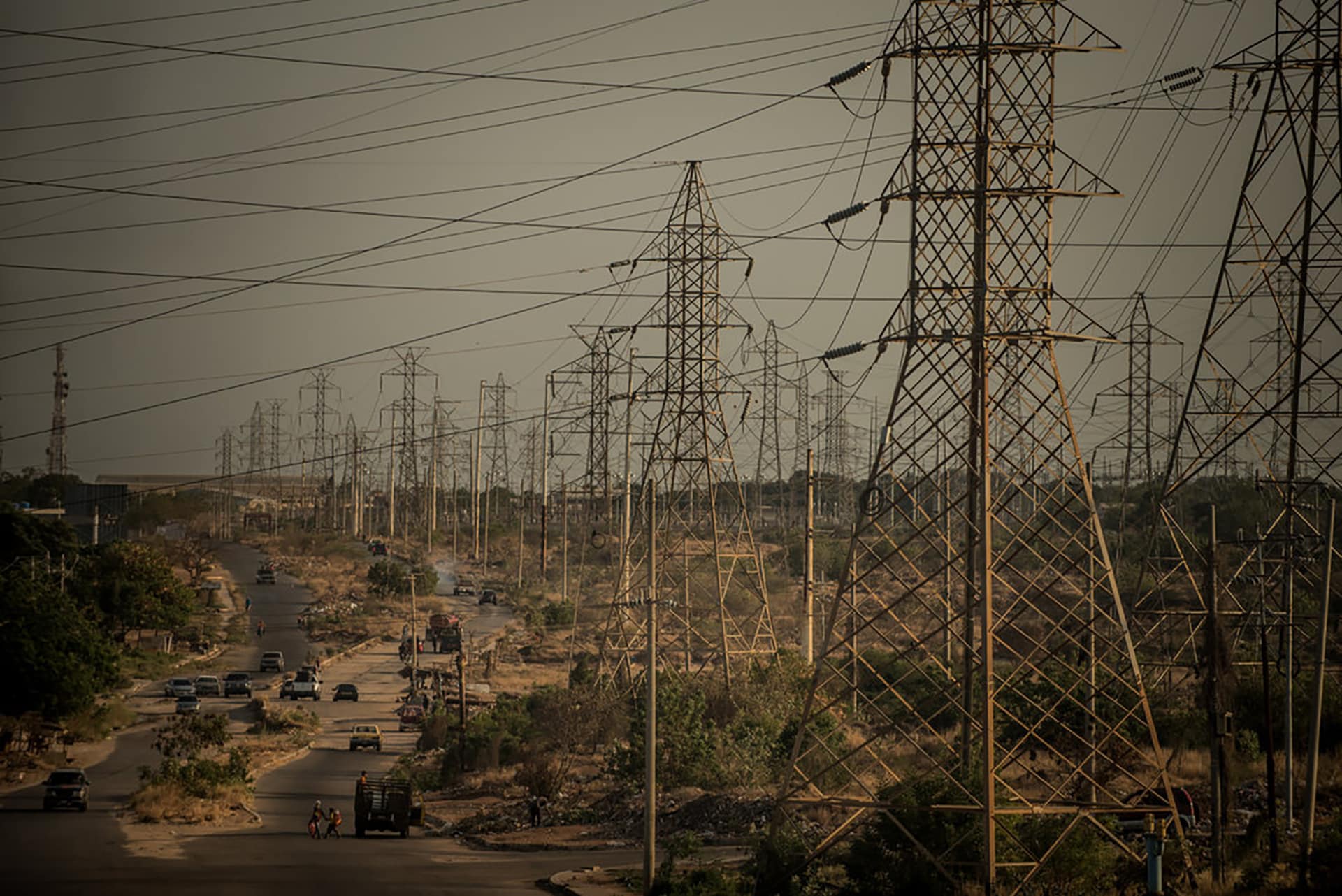
Power lines near Maracaibo, Venezuela in 2019. Photo: Meredith Kohut/New York Times/File photo.

Orinoco Tribune – News and opinion pieces about Venezuela and beyond
From Venezuela and made by Venezuelan Chavistas

Power lines near Maracaibo, Venezuela in 2019. Photo: Meredith Kohut/New York Times/File photo.
When the “Second Agreement for the Social Protection of the People” was signed in Mexico, within the framework of the Dialogue and Negotiation Table, also known as the Mexico Talks, the priority consisted of addressing, with the expected unfrozen financial resources, the most decisive social and economic injuries to the Venezuelan population. These hardships occur as a consequence of the expansive and generalized use of US illegal “sanctions” including economic and wage limitations, difficulties in accessing food, reduced availability of vaccines and other supplies in public healthcare centers, and failures in both educational and electrical infrastructures—the latter of vital importance for the re-establishment of the oil industry and national economic activity in general.
At a press conference last April, Jorge Rodríguez, president of Venezuela’s National Assembly and head of the delegation for the Venezuelan government to the Mexico Talks, explained that the equivalent of more than one billion US dollars would be allocated to the Venezuelan electricity system in order to increase generation by more of 432 megawatts and strengthen the energy transmission system. This would have a direct impact on the regular flow of energy in all activities related to the Venezuelan economy, so necessary for the current context of economic recovery.
Washington Approves and Delays Fund for Social Investment in Venezuela (+México Talks)
However, resources would also be allocated to many other projects in Venezuela:
• Attention to more than 2,300 schools, their infrastructure, and technological material.
• The equivalent of more than 1 billion US dollars destined to funding vaccines for the immunization program and the payment of the Revolving Fund of the Pan American Health Organization (PAHO).
• Provision of oncological medicines for more than 60,000 cancer patients.
• Provision of retrovirals for patients with HIV.
• Recovery from the radiotherapy program.
• Nationwide surgical debt response.
• Recovery of seven blood banks.
• Modernization and equipment of 10 maternal and child hospitals.
• Revitalization of 21 hospitals in the National Hospital Network.
The amount would be equivalent to $3.2 billion US, initially, according to the parties. These legitimate funds of the republic have been illegally frozen in the international financial system since 2018, after the continuous siege of the world elite who determined the policies of the United States and Europe. This amount represents just a fraction of the Venezuelan assets, valued at more than 20 billion US dollars, blocked by banks and other financial entities since the economic war began.
Since November 2022, when the so-called “Second Agreement” was signed, many national and international events have taken place, but the repatriation of the country’s funds, with the mediating participation of the United Nations (UN) for the use of that money, has not yet materialized. The United States has resolutely maintained its blockade, and the opposition that represents that power within Venezuela is subordinated to the needs and interests of the foreigner, including continuing to feed the discontent within Venezuela.
Translation: Orinoco Tribune
OT/JRE/SL
Support Orinoco Tribune team’s unique, amazing, and unmatched work!
5.5 years providing honest and responsible anti-imperialist information about the Global South!
66 months working for you, 18.5K posts published, 60 original pieces in the last 4 months, 21 YouTube interviews over the last 12 months, and much more to come!
Your donations make a big difference!